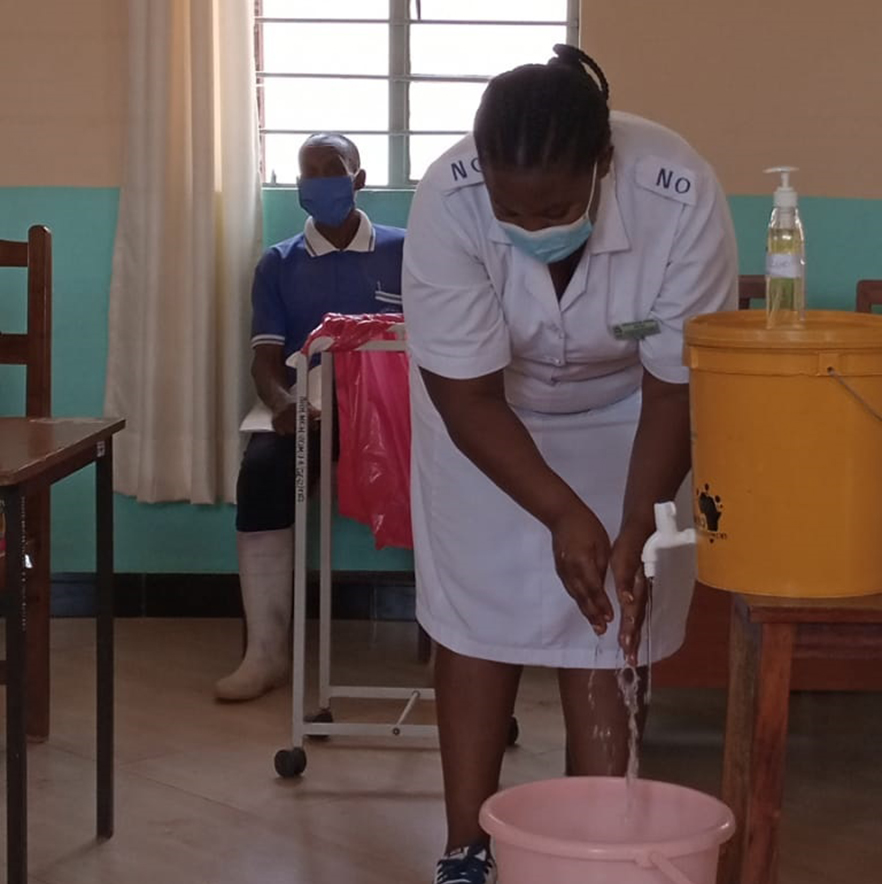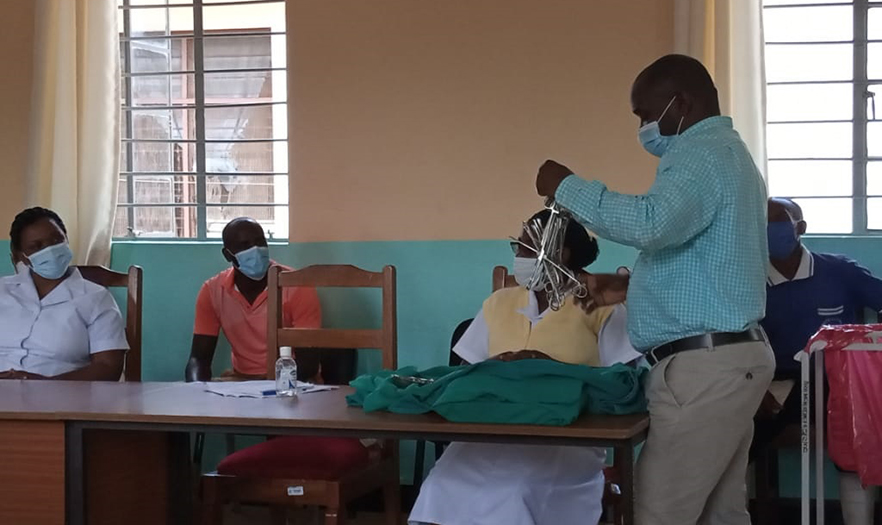Making Infection Prevention Capacity Sustainable: A Six-point Plan in Tanzania
By Dr. Doris Lutkam, MTaPS Senior Technical Advisor
The Tanzania Ministry of Health (MoH) started its infection prevention and control (IPC) initiatives under its Health Quality Assurance unit in 2003. Guidelines and standard operating procedures were developed on IPC, injection safety, and waste management. In early 2016, an assessment using WHO’s Joint External Evaluation tool rated the country’s capacity to respond to an epidemic as developed but not sustainable (a score of 3 on a scale of 1 to 5). The assessment indicated gaps in staff skills in IPC at the national and subnational levels. In addition, the monitoring system, which is key to continuous improvement, did not function well. In 2018, the MoH began a partnership with the USAID MTaPS program on a mission to advance the country’s IPC status and increase its capacity to the next level.
Over the last two years, MTaPS has implemented a robust mix of six strategies from the national to the health care facility level at six pilot locations. These strategies are moving Tanzania closer to its IPC goals:
1. Wide dissemination of IPC guidelines: Given the shortage of staff trained on IPC and fewer facilities implementing IPC interventions, MTaPS updated the guidelines in accordance with WHO and disseminated them through trainings in Mwanza, Dar es Salaam, Kigoma, and Songwe counties. A total of 350 clinicians, nurses, pharmacists, lab technicians, and environmental officers from regional and district hospitals were trained. The program collaborated with USAID Boresha Afya, the Global Fund, and other partners to reach six additional regions with the updated IPC guidelines.
2. Revised IPC curriculum for health professionals: MTaPS updated the IPC courses for colleges, continuous professional development, and in-service trainings. The program trained teachers at 61 health-related colleges on the new curriculum and disseminated it through numerous professional bodies, reaching nurses, midwives, clinicians, pharmacists, environmental specialists, and traditional healers. The revised curriculum, which is with the MoH for endorsement, ensures that new and existing health care workers are aware of the new IPC guidelines and can incorporate them in their work settings.
3. E-learning platforms for continued capacity building: MTaPS is focusing on sustainably strengthening institutional capacity for IPC by introducing e-learning platforms. The program engaged the MoH’s Center for Distant Education to start the initiative and helped them to develop IPC e-learning materials and trained tutors on facilitating and managing e-learning courses. These materials will be used for both in-service and pre-service learners.
4. Infection control committees (ICCs) at health facilities: An ICC has been established as part of the Quality Improvement Team at five health facilities, while a sixth facility is expected to have its ICC in place in September. A criterion used by WHO in rating countries for their outbreak response capacity, these committees provide guidance on and monitoring of IPC practices, and have already increased IPC scores at the respective facilities. At Seko-Toure Hospital, where there was no prior IPC program, the score went up from 0 to 80 out of 100.
5. A culture of continuous quality improvement at health facilities: MTaPS is working with the six health facilities to establish a cycle of self-improvement through self-assessments and rewards in the form of a trophy or certificate to recognize improved performance. The program provided support to help facilities bridge their gaps by developing an action plan and mentored staff in areas such as waste management and packaging of surgical instruments. The IPC scores dramatically improved, particularly in three hospitals in Dodoma, Mwanza, and Kigoma regions.
6. An IPC monitoring system for measured progress: A key deterrent to sustainable improvements in IPC is the lack of a standard monitoring system in Tanzania. MTaPS supported the MoH to develop indicators for the health facilities to track and report to the MoH on the progress of implementation of IPC interventions. The quarterly reporting by all health facilities—hospitals, health centers, and dispensaries—will enable the MoH to prioritize its support to the facilities and design appropriate interventions.

Mentorship on handwashing techniques with soap and water. Photo credit: Daniel Paul
Next Steps
Moving forward, MTaPS aims to increase the number of health facilities for IPC support, leveraging the increased IPC capacity of the MoH and the quality improvement focal points at every region/district and facility. MTaPS will also support the MoH to improve its monitoring and evaluation system and to empower facilities and the MoH to use the information for adequate responses. Another area of focus is water, sanitation, and hygiene (WASH), which will require convening and aligning stakeholders from two MoH directorates.
Key Lessons from Tanzania
- The MoH’s ownership of the initiative has proven to be key to the success of IPC programs.
- Frequent support and mentorships for facilities is important for the IPC program at the facility level to be sustainable.
- IPC training should not be limited to only nurses and must reach all health care-related professionals and administrators.
- Whenever there are updates in IPC guidelines, it is important to disseminate the updates to colleges and universities so the developing workforce is adequately aware and prepared for their jobs.
MTaPS’ IPC activities are part of a larger and ongoing area of work on containing antimicrobial resistance in Tanzania. These efforts backed up the country’s response to COVID-19 by strengthening institutional and human resource capacity and updating IPC practices in the country.

Mentorship on packaging instruments in a way that will help prevent infections at the facility. Photo credit: Daniel Paul